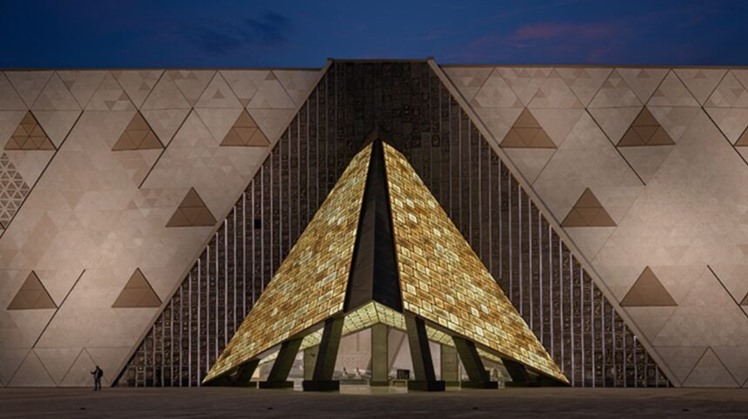CAIRO - 1 November 2025: The President of the Japan International Cooperation Agency (JICA), Dr. Akihiko Tanaka, affirmed that the Grand Egyptian Museum (GEM) stands as a monumental cultural project of great significance—not only for the Egyptian people but for humanity as a whole.
He noted that its official opening will further enhance Egypt’s global cultural influence, complementing its well-established political and regional role.
In an interview on the “This Morning” program aired on Extra News, Dr. Tanaka described the project as a true embodiment of the strategic partnership between Egypt and Japan, founded on mutual trust and the exchange of expertise.
“We rely on the competence of Egyptians in managing this grand edifice,” he said, “and with the participation of Japanese experts, the management can become even more effective and efficient.”
Dr. Tanaka emphasized that, with its unique location amid Egypt’s archaeological treasures, the Grand Egyptian Museum will attract visitors from all over the world, including Japan. He described it not merely as a museum, but as a cultural beacon that connects the past with the present and inspires future generations.
He added that Japan takes great pride in contributing to this project, which reflects its deep appreciation for Egyptian civilization and its pivotal role in shaping human heritage. The partnership between the two nations, he said, has evolved beyond development to encompass broad cultural and civilizational cooperation.
In a related context, the JICA president praised Egypt’s constructive role in promoting peace and stability across the Middle East—particularly its efforts toward achieving peace in Gaza. He stressed that Egypt plays both a political and geographical role of great importance, and with the inauguration of the Grand Egyptian Museum, it now also stands as a global center of cultural and humanitarian influence.
“The opening of the Grand Egyptian Museum will remain a lasting source of inspiration for young generations around the world,” Dr. Tanaka concluded. “It reaffirms that Egypt continues to lead the global cultural and humanitarian landscape.”
Meanwhile, JICA Regional Representative in Egypt, Mayada Ragheb, highlighted that cooperation between Egypt and Japan extends far beyond funding the construction of the Grand Egyptian Museum. It includes wide-ranging initiatives in the field of antiquities preservation and restoration.
In an exclusive interview on “Good Morning Egypt” on Egypt’s Channel One, Ragheb explained that collaboration on the museum began in 2006, when JICA provided the first concessional loan to support the project’s establishment. A supplementary loan followed in 2016 to ensure the continuation of construction.
She revealed that two new technical cooperation projects are planned following the museum’s opening: one focused on operation and management, and another dedicated to supporting the GEM Conservation Center, transforming it into an international hub for scientific research and knowledge exchange.
JICA also contributed to the excavation and restoration of Khufu’s second solar boat, providing financial support amounting to approximately 500 million Japanese yen (around $3.5 million). A joint Egyptian–Japanese archaeological team, led by the renowned Professor Sakuji Yoshimura in collaboration with Waseda University, excavated and restored more than 1,650 wooden pieces of the boat. The reconstructed vessel now joins the first solar boat in a special exhibition inside the Grand Egyptian Museum—standing as a remarkable symbol of Egyptian-Japanese cooperation and shared respect for history.
 Sat, Nov. 1, 2025
Sat, Nov. 1, 2025